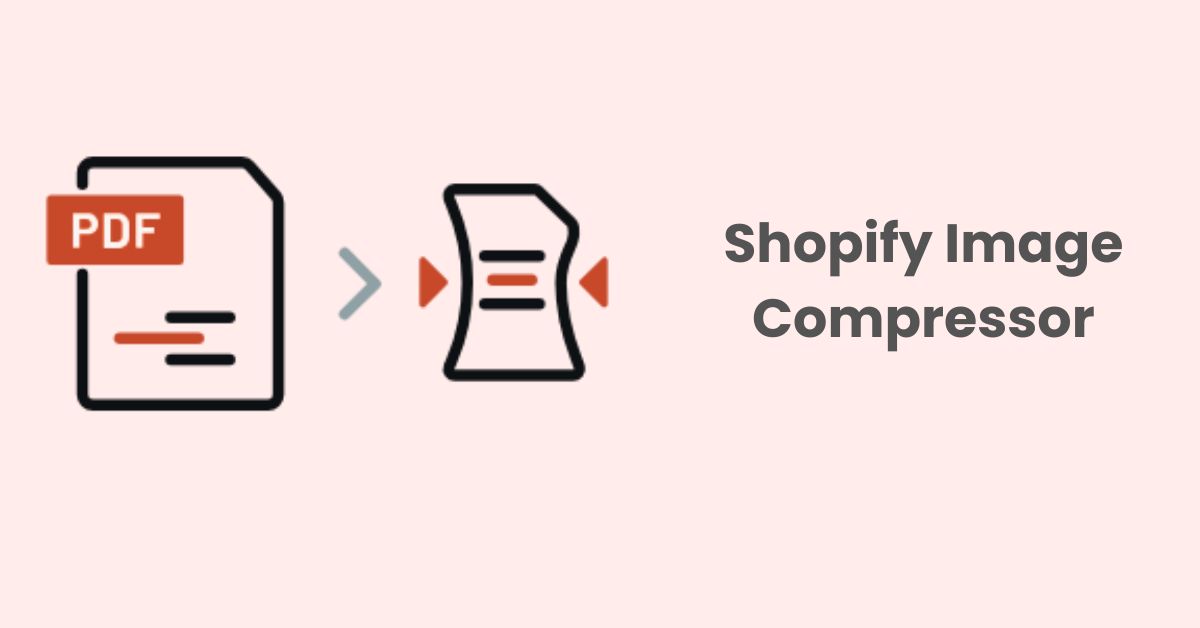Technical SEO vs On Page SEO vs Off Page SEO Differences
When it comes to SEO tactics, it could seem very complicated to people who are just starting out in the field. Don’t worry, I’ll walk you through the distinctions between “Technical SEO vs On Page SEO vs Off Page SEO,” which are three basic SEO strategies that are essential for success, regardless of your level of website ownership. Now let’s get going!
Key Differences Between Technical SEO vs On Page SEO vs Off Page SEO
Technical SEO vs on page SEO vs off page SEO, they are three different aspects of search engine optimization (SEO). SEO is the process of optimizing a website to improve its visibility and ranking in search engine results pages (SERPs).
Here is a table that summarizes the key differences between technical SEO, on page SEO, and off page SEO:
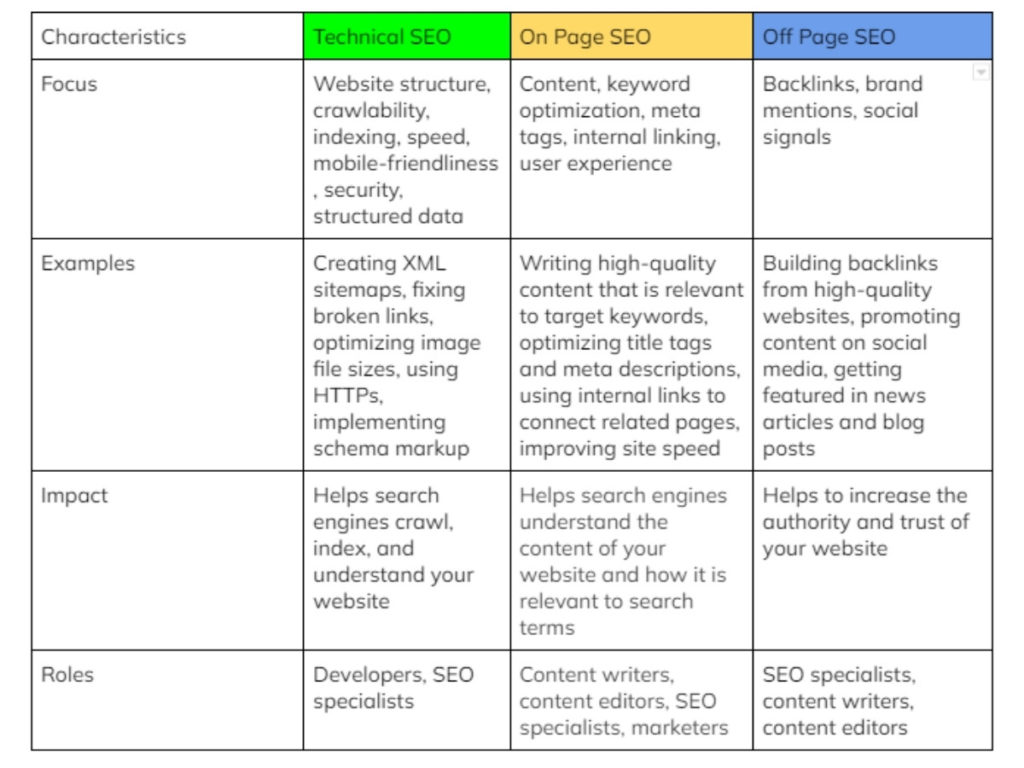
All You Need To Know About Technical SEO
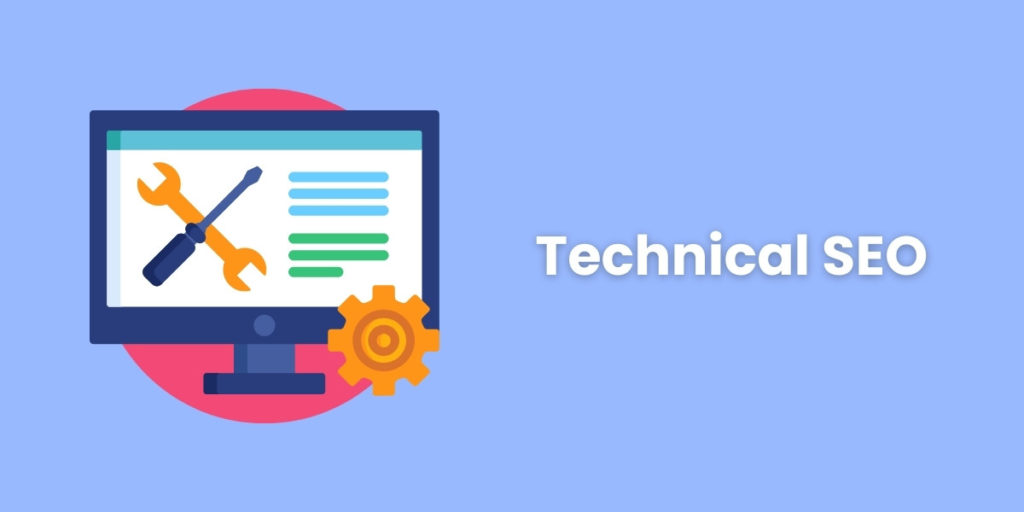
Technical SEO Definition
Technical SEO is the process of optimizing a website’s technical aspects to improve its search engine rankings. It includes tasks such as improving site speed, mobile-friendliness, and crawlability.
It is important because it helps search engines to understand your website and its content, which can lead to higher rankings in search results.
Technical SEO Practices
Here are some of the key elements of technical SEO:
Site speed:
Search engines prefer websites that load quickly. A slow website can frustrate users and cause them to leave your site before it even fully loads. You can improve your site speed by optimizing your images, using a caching plugin, and reducing the number of plugins and widgets you use.
Mobile-friendliness:
More and more people are using their smartphones and tablets to access the internet. It’s important to make sure your website looks good and functions well on all devices. You can check your website’s mobile-friendliness using Google’s Mobile-Friendly Test.
Crawlability:
Search engines use crawlers to index your website. Crawlability refers to how easily crawlers can access and index your pages. You can improve your website’s crawlability by creating a robots.txt file and submitting a sitemap to Google Search Console.
Structured data:
Structured data is a way to provide additional information about your website to search engines. This information can be used to display rich snippets in search results, which can help to improve your click-through rate. You can add structured data to your website using tools such as Google’s Structured Data Markup Helper.
In addition to these key elements, there are a number of other technical SEO factors that can impact your search engine rankings. These include:
- Duplicate content: Duplicate content is content that appears on multiple pages of your website, or on other websites. Duplicate content can confuse search engines and make it difficult for them to index your website properly.
- Broken links: Broken links are links that lead to pages that no longer exist. Broken links can frustrate users and make it difficult for them to navigate your website. You can use a tool such as Google Search Console to identify and fix broken links on your website.
- Canonical tags: Canonical tags are used to tell search engines which version of a page is the preferred version. This is important for pages that have multiple versions, such as product pages with different sizes or colors.
- SSL certificate: An SSL certificate encrypts data that is transmitted between your website and visitors’ browsers. This helps to protect users’ personal information and data.
Technical SEO can be a complex topic, but there are a number of resources available to help you get started. You can find helpful articles and tutorials on the websites of Google, Ahrefs, and Moz. You can also hire an SEO specialist to help you with your technical SEO needs.
Here are some tips for improving your technical SEO:
- Start with a technical SEO audit. This will help you to identify any areas of your website that need improvement.
- Fix any critical issues. This could include things like broken links, duplicate content, and site speed issues.
- Make your website mobile-friendly. This is essential for ranking well in mobile search results.
- Implement structured data. This can help to improve your click-through rate and visibility in search results.
- Submit a sitemap to Google Search Console. This will help Google to index your website more effectively.
- Monitor your website’s technical SEO performance on a regular basis. This will help you to identify any new problems that arise.
By following these tips, you can improve your website’s technical SEO and boost your search engine rankings.
All You Need To Know About Off Page SEO

Off Page SEO Definition
Off page SEO refers to all of the activities that you do outside of your website to improve its search engine rankings. This includes things like link building, social media marketing, and guest posting.
It is important because it helps search engines to understand the authority and popularity of your website. When other websites link to your website, it tells search engines that your content is valuable and trustworthy.
Off Page SEO Practices
Here are some of the key elements of off page SEO:
- Link building: Link building is the process of getting other websites to link to your website. Links from high-quality websites are more valuable than links from low-quality websites. There are a number of ways to build links, such as guest posting, creating high-quality content, and submitting your website to directories.
- Social media marketing: Social media marketing is the process of promoting your website and content on social media platforms such as Facebook, Twitter, and LinkedIn. Social media marketing can help you to increase brand awareness and drive traffic to your website.
- Guest posting: Guest posting is the process of writing articles for other websites. Guest posting can help you to build links to your website and reach a new audience.
In addition to these key elements, there are a number of other off-page SEO factors that can impact your search engine rankings. These include:
- Brand mentions: Brand mentions are any mentions of your brand name online, even if they don’t include a link to your website. Brand mentions can help to increase brand awareness and improve your website’s reputation.
- Social shares: Social shares are the number of times your content is shared on social media platforms. Social shares can help to increase brand awareness and drive traffic to your website.
- Reviews: Reviews from customers and clients can help to improve your website’s reputation and trust.
Off page SEO can be a time-consuming process, but it’s an important part of any SEO strategy. By building links, promoting your website on social media, and guest posting, you can improve your website’s search engine rankings and attract more visitors to your site.
Here are some tips for improving your off page SEO:
- Create high-quality content. Your content should be informative, engaging, and well-written. If you create high-quality content, other websites will be more likely to link to it.
- Promote your content on social media. Share your content on social media platforms such as Facebook, Twitter, and LinkedIn. This will help to increase brand awareness and drive traffic to your website.
- Build relationships with other website owners. Guest posting and other outreach activities can help you to build relationships with other website owners. This can lead to link building opportunities and other benefits.
- Monitor your off-page SEO performance on a regular basis. You can use tools such as SemRush and Ahrefs to track your backlinks and other off-page SEO metrics. This will help you to identify areas where you need to improve.
By following these tips, you can improve your off page SEO and boost your search engine rankings.
All You Need To Know About On Page SEO

On Page SEO Definition
On-page SEO is the process of optimizing your website’s content and structure for search engines. It includes things like optimizing your title tags, meta descriptions, header tags, image alt text, and content for relevant keywords.
It is important because it helps search engines to understand what your website is about and how it is relevant to the search terms that people are using.
On Page SEO Practices
Here are some of the key practices of on page SEO:
- Use relevant keywords throughout your content. This includes using your target keywords in your title tags, meta descriptions, header tags, image alt text, and throughout your content. However, be careful not to overuse your keywords, as this can lead to keyword stuffing, which can penalize your website in search results.
- Write high-quality content that is informative and engaging. Your content should be well-written and informative, and it should be relevant to your target audience. Search engines prefer websites with high-quality content, so make sure that you are putting your best foot forward.
- Optimize your images. Use descriptive file names for your images and include alt text that describes the image. This will help search engines to understand what your images are about and index them properly.
- Use internal linking. Internal linking is the process of linking to other pages on your website. This helps search engines to understand the structure of your website and the relationships between your pages.
- Make sure your website is mobile-friendly. More and more people are using their smartphones and tablets to access the internet, so it is important to make sure that your website looks good and functions well on all devices.
By following these on-page SEO practices, you can improve your website’s visibility in search results and attract more visitors to your site.
Here are some additional tips for improving your on page SEO:
- Use a consistent navigation structure. This will help users to find the information they are looking for quickly and easily.
- Use descriptive and keyword-rich URLs. This will help search engines to understand what your pages are about.
- Use a variety of header tags. Header tags help to break up your content and make it easier to read for both users and search engines.
- Use bold and italic text sparingly. Bold and italic text can be used to emphasize important points, but they should not be used excessively.
- Use bulleted and numbered lists. Bulleted and numbered lists can make your content easier to read and scannable.
- Use images and videos. Images and videos can make your content more engaging and visually appealing.
- Proofread your content carefully. Make sure that your content is free of errors in grammar and spelling.
Improving your on-page SEO is an ongoing process, but it is an important investment for any website that wants to rank well in search results and attract more visitors.
Technical SEO vs On Page SEO
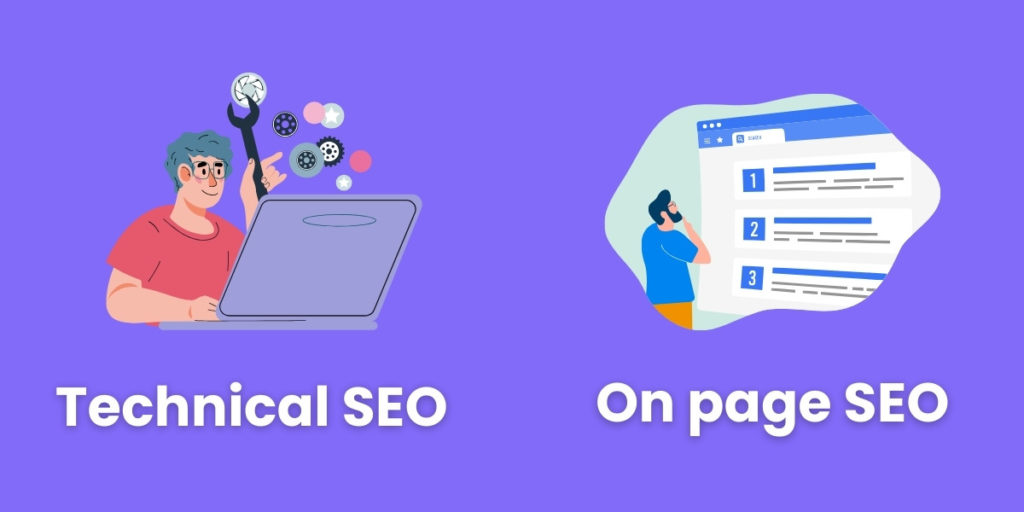
Technical SEO is important because it helps search engines to crawl and index your website. If your website is not technically sound, it will be difficult for search engines to find and rank your pages.
On-page SEO is important because it helps search engines to understand the content of your website and how it is relevant to search terms. If your on page SEO is not optimized, your pages are less likely to rank well in search results.
Technical SEO vs on page SEO, both are important for achieving high rankings in search results. However, they have different focuses and require different strategies.
Off Page SEO vs On Page SEO
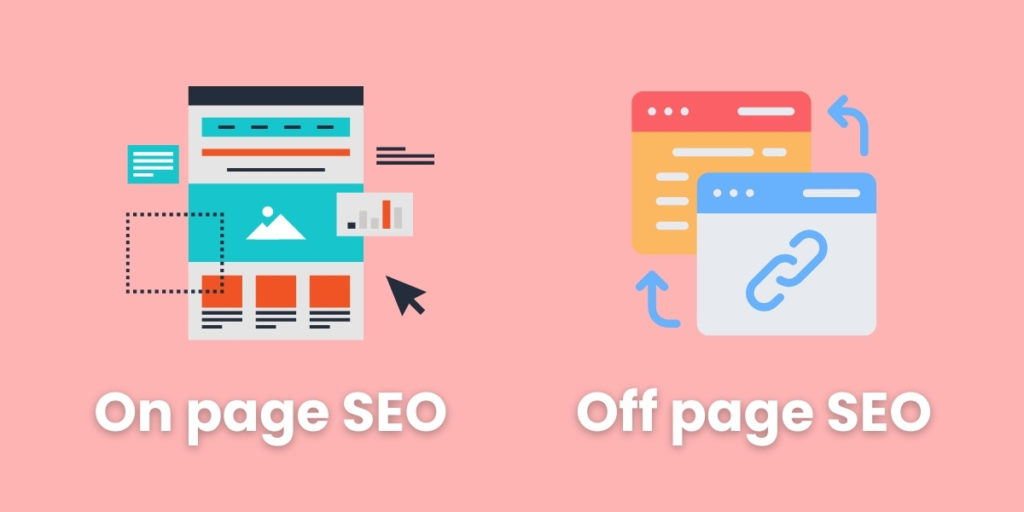
These practices are two different aspects of search engine optimization (SEO).
Off page SEO focuses on activities that take place outside of a website. This includes things like link building, social media marketing, and guest posting. It helps search engines to understand the authority and popularity of a website.
On page SEO focuses on optimizing the content and elements of a website. This includes things like title tags, meta descriptions, header tags, image alt text, and content. It helps search engines to understand the content of a website and how it is relevant to search terms.
How You Should Combine Those SEO Practices?
To combine on page and off page SEO practices, you should focus on creating high-quality content that is both informative and relevant to your target audience. You should also optimize your content and website structure for search engines, and build relationships with other websites in your industry.
Here is a more detailed step-by-step guide:
- Start with keyword research. Identify the keywords that your target audience is searching for. You can use a keyword research tool such as Google Keyword Planner or Ahrefs to help you with this.
- Create high-quality content that is optimized for your target keywords. Your content should be well-written, informative, and engaging. You should also use your target keywords throughout your content in a natural way.
- Optimize your website structure for search engines. This includes using descriptive and keyword-rich URLs, creating a clear navigation structure, and using internal linking to connect your pages together.
- Build links to your website from other high-quality websites. This is one of the most important factors in off-page SEO. You can build links by guest blogging, creating infographics and other linkable content, and reaching out to other website owners.
- Promote your content on social media and other online platforms. This will help to increase brand awareness and drive traffic to your website, which can lead to more link building opportunities.
- Monitor your SEO results on a regular basis. Use tools such as Google Search Console and Ahrefs to track your keyword rankings, backlinks, and other SEO metrics. This will help you to identify areas where you need to improve.
By following these steps, you can combine on-page and off page SEO practices to improve your website’s visibility in search results and attract more visitors.
Wrap up
As you can see, technical SEO vs on page SEO vs off page SEO, all are important aspects of SEO. Applying all of these elements and improve them will definitely bring your website to a whole new level!
I hope your SEO journey is successful! Furthermore, if you use Shopify, think about utilizing the SearchPie app to improve your SEO and quickly raise your rankings.



